Stacie Behler, CAS ’92, was disappointed when she “literally ran out of money and came home” to Sterling Heights from Michigan State University (MSU) in 1989, and began her political science studies at Oakland University. But in retrospect, she says, “it was the exact thing that was supposed to happen.”
Today Behler is the group vice president for public affairs and communications at Meijer, as well as the executive director of the Meijer Foundation. She also has extensive legal experience, having worked as Meijer’s senior legal counsel and as an attorney at Grand Rapids-based Smith Haughey Rice & Roegge. But she faced considerable challenges when she first set out to pursue her dream of a career in law and policy. Behler’s parents both worked extremely hard and, while they supported her as a first-generation college student, she says the idea of going to college was a bit “foreign to them” and they were nervous about the long and short term costs connected to getting a college degree.
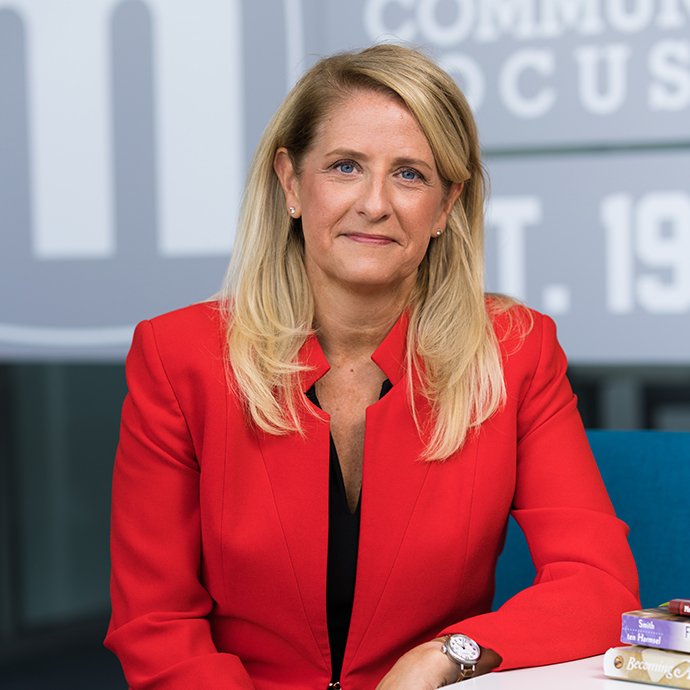 |
"I watched my parents work incredibly hard but not have and do everything they wanted,” she says. “I wanted more and knew that college would allow me more financial stability.”
After a year at MSU exhausted her financial resources, Behler knew she’d have to continue her education somewhere near her parents’ house and work while taking classes. The obvious answer was OU, but Behler says she struggled with “a lot of misconceptions” about OU before she started taking classes there. She’d thought of OU as a commuter school that didn’t have much campus life, with lots of students older than her going back to finish their degrees. Now she says some of her assumptions were plain wrong — while others were true, “but just in a wonderful way.”
“Oakland was the perfect place for me,” she says. “I can’t imagine getting through college anywhere else.”
Building a community
One of the key ways in which OU defied Behler’s expectations was in her experience with her fellow students. Although she did meet many non-traditional students, including working parents, she bonded closely with and drew inspiration from them. Behler worked days at a small family office and took night classes for most of her time at OU. Many of her older fellow students related to her challenges.
“They took it seriously,” she says. “They worked hard and they were real role models for me as I tried to balance some of the same things they were balancing around working full-time and trying to complete degrees quickly.”
Behler says she also appreciated the way her older classmates would “bring a willingness to talk about their life experience into the classroom.” She appreciated the diversity of experience they brought to class and the way they made discussion “so much richer.” She recalls doing group work for certain classes with fellow students whose family and work commitments required them to host the group in their homes, rather than on campus or another public place.
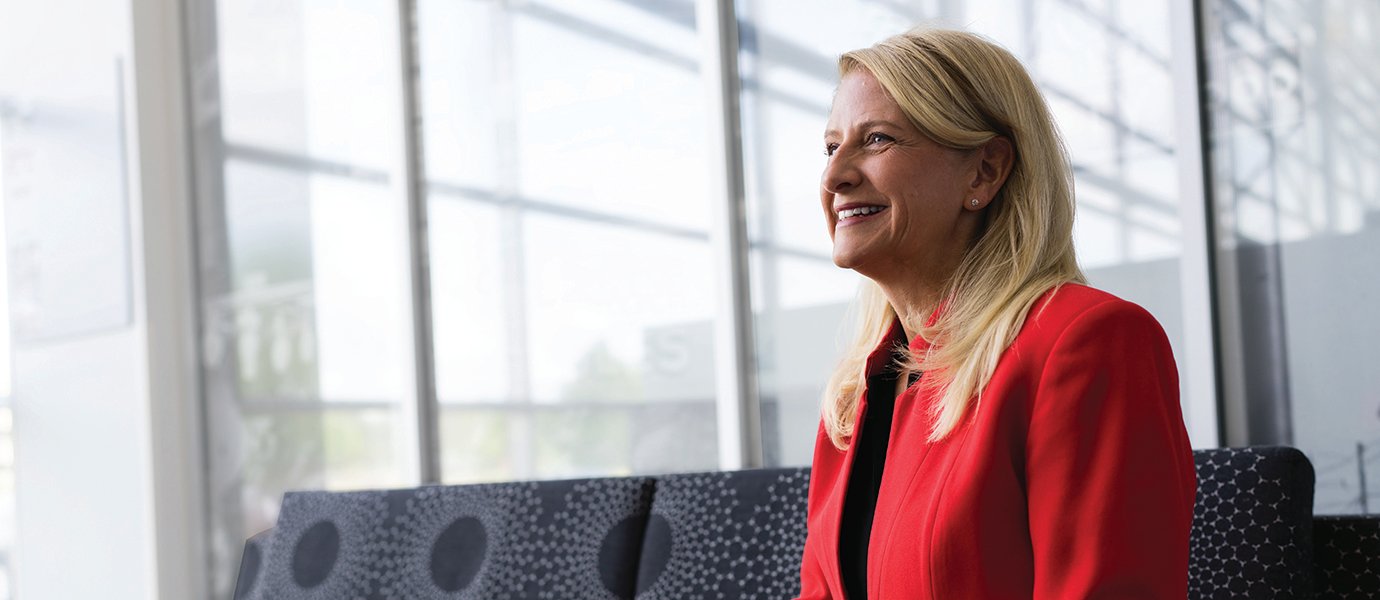
“I was a 19- or 20-year-old student and had my own challenges, but these folks were sitting in their living room with their 8-year-old eating dinner in the kitchen while we’re working on our homework,” Behler says. “Just watching the resilience of those students was life-changing. I think it reminded me never to take things for granted, that going to college was a gift, that having these opportunities to learn was not something that most people got.”
Having formed a robust friend group, Behler was also surprised to find that she developed a strong sense of campus life. She says she found OU’s campus to be a “safe and quiet place to study,” even though “there were only a handful of places to hang out” at the time. Behler recalls the Oakland Center being just the basement of a building, with cafeteria tables and a couple of restaurants. But, she says, “it was everything.”
“I really got that college experience and that was not what I expected,” she says. “It really was a great campus life and a beautiful campus, even back then.”
A life-changing mentor
Behler also found crucial support in OU staff — most notably from now-retired political science professor Shelly Appleton, who she says “changed my life.” “He was just transformational. I don’t think I would have been able to navigate through college without someone like him constantly supporting me.”
Behler had her first class with Appleton in her sophomore year and says she’s “so disappointed for everyone who didn’t have a chance to get to meet him.
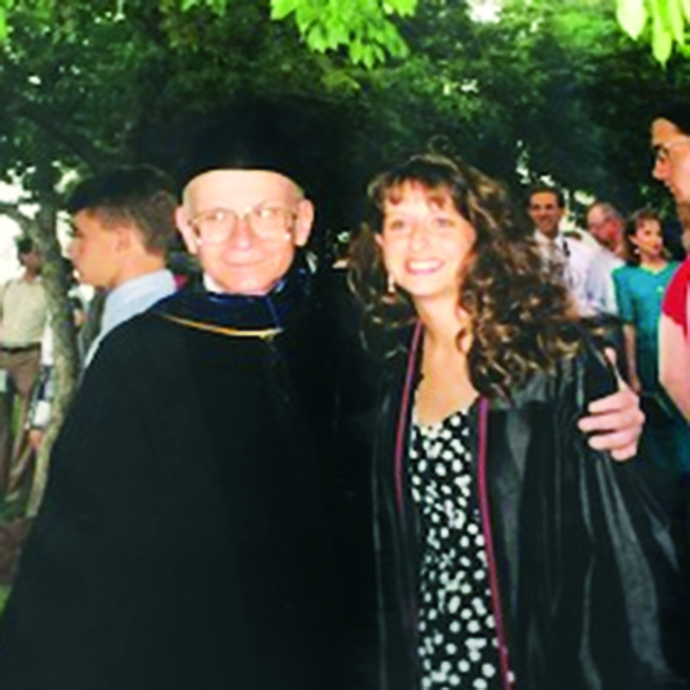 |
“He was a pistol,” she says. “He was very passionate about politics — not partisan politics, but the philosophies and the historical nature of where we were as a country and why we were there.”
Behler tried to take every class of Appleton’s that she could, and the two became friends. When he learned she was trying to make some extra money to get through school, he offered her a job as his teaching assistant. He later got her a job doing administrative work in the provost’s office, where he was associate provost for undergraduate studies.
“I think he understood my circumstances and what I was working to accomplish. He had children of his own,” she says. “But I think he could really connect with where I was emotionally. It was a lot to get through with not a lot of free time. He was just always a good listener and encourager.”
Appleton also helped shape Behler’s path post-graduation. He wrote recommendations for her when she was applying to law schools. Behler ended up attending the University of Illinois Urbana-Champaign. And while accepted and was offered scholarships to attend school in Southeast Michigan, she says Appleton encouraged her to leave Michigan and strike out on her own.
“It was time,” she says. “I needed an independent experience like that, and it helped me grow and develop confidence that I didn’t have before then. In the big picture, it’s just what I needed to grow up.”
Convening conversations
After Behler graduated from OU in 1992, she remained involved on campus. Notably, in 2018, OU political science professor David Dulio recruited her to join the founding advisory board for the OU Center for Civic Engagement (CCE). CCE aims to act as a “convener of conversations,” engaging a variety of stakeholders in productive, nonpartisan dialogue on local, state and federal political issues. But before CCE got off the ground, Director Dulio pulled together a group of thought leaders from across the state to help shape its mission. He says Behler was a natural choice for the board.
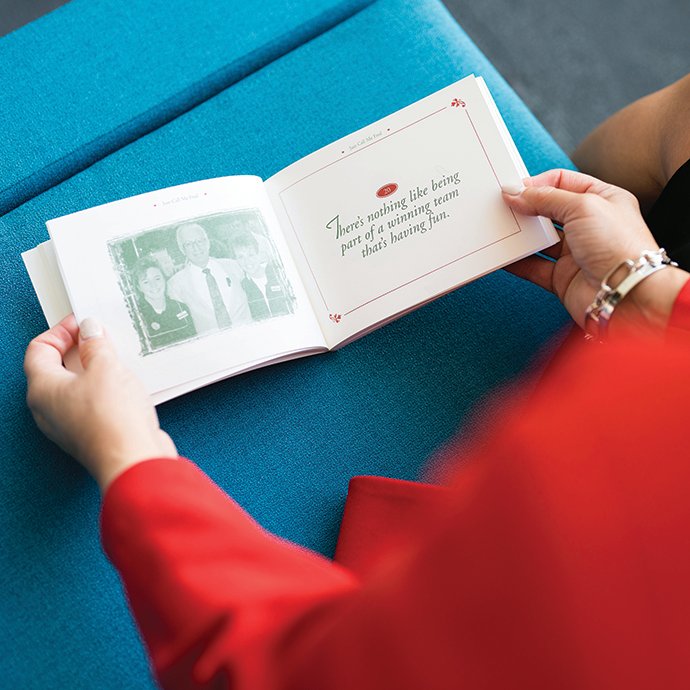 |
“She has a long and distinguished career in and around Michigan politics, Michigan policy and philanthropy,” Dulio says. “She’s a Golden Grizzly that we want to tout and proudly claim as one of ours.”
Erin Sudrovech, OU’s director of alumni engagement, was on CCE’s internal advisory board. She says getting a whole new organization off the ground was no easy feat, but Behler rose to the challenge. “As a founding member, it’s really important for you to have the time to dig in a little bit more and be comfortable trying to create strategy, not just execute it,” Sudrovech says. “Stacie was really well suited for that.”
In addition to her work on CCE, Behler also received OU’s Distinguished Alumni Award in 2014 and spoke at OU’s 2016 commencement ceremony. Behler now lives in Grand Rapids and makes no bones about the fact that she hopes to get an OU alumni chapter on the west side of the state off the ground. In the meantime, Sudrovech says she values Behler’s willingness to assist with planning events for alumni in her region. “She’s been a big part of championing those efforts,” Sudrovech says. “She was the one who was hooking us up with space and recommending where we should go to host something. That was just really helpful for us to have boots on the ground over there.”
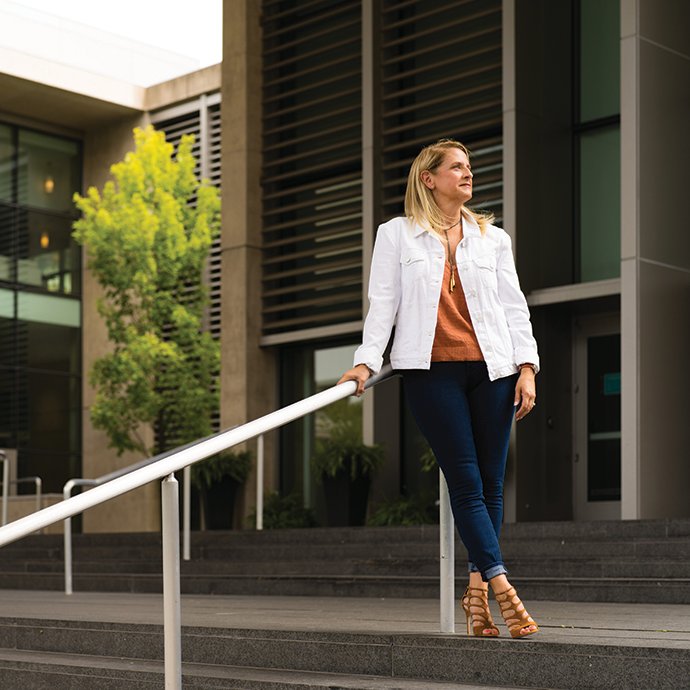 |
Behler’s efforts at OU as an alumnus seem to reflect the broader way she approaches her passion for politics — as a “convener of conversations,” to use CCE’s parlance. Like her mentor, Appleton, she’s not interested in partisanship. She notes that she and her husband bought a home larger than they needed in Grand Rapids so they could throw regular fundraisers — although he is a Democrat and she is a Republican. But she sees those events as places where “people can come and build relationships based on trust and understanding, not on partisanship.” And she traces that approach back to her time at OU.
“My OU education informs me in the understanding that, while we may not have common background or shared experience, there’s much to be learned from each other,” Behler says. “Oftentimes we don’t see each other because we don’t want to. We just want to see what’s different or the same. What Oakland taught me was to listen and to be open to people who aren’t like me.”
Explore more OU Magazine alumni stories.

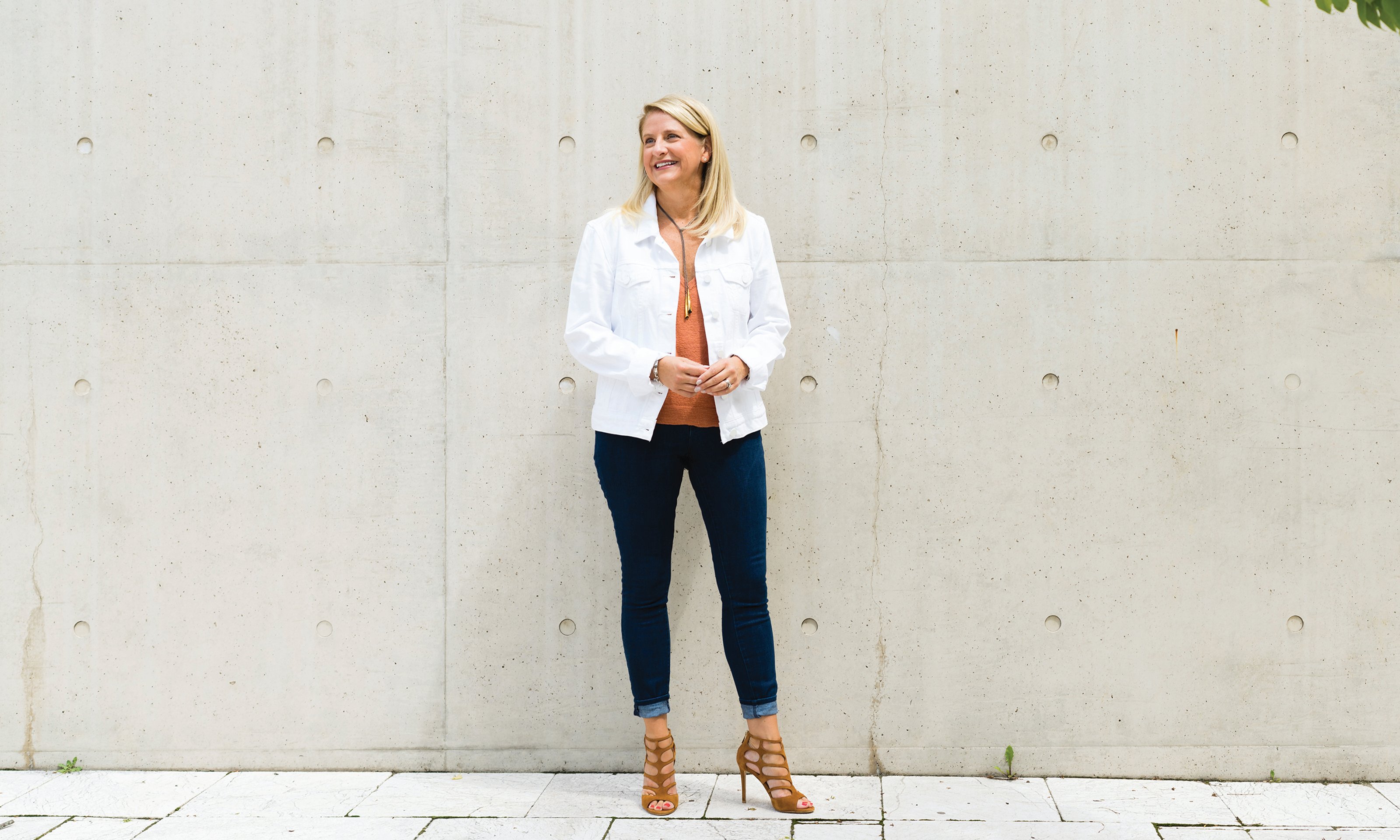

 By Patrick Dunn
By Patrick Dunn








